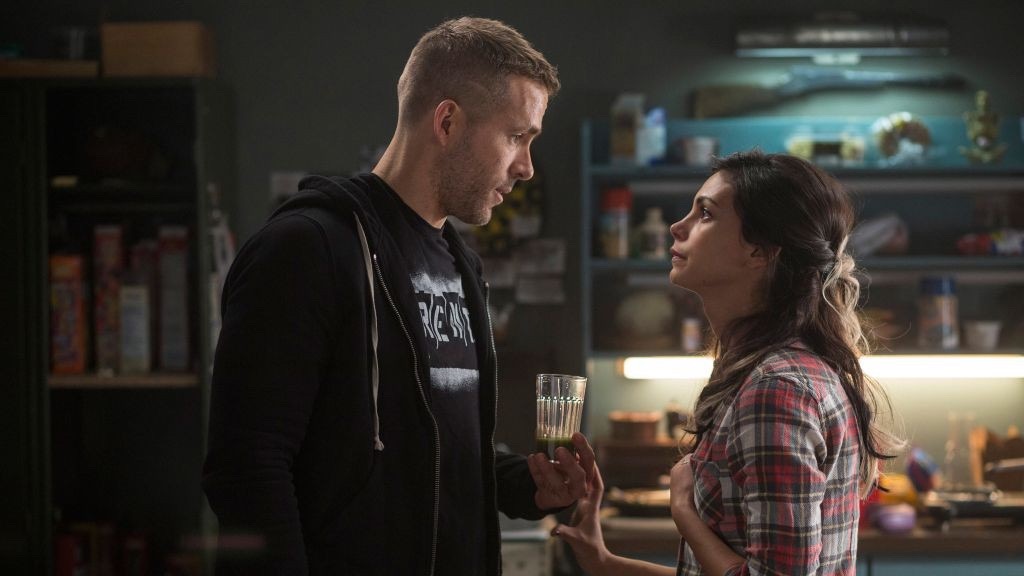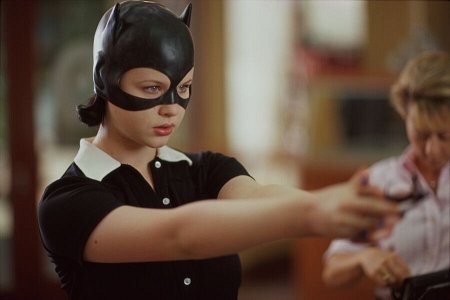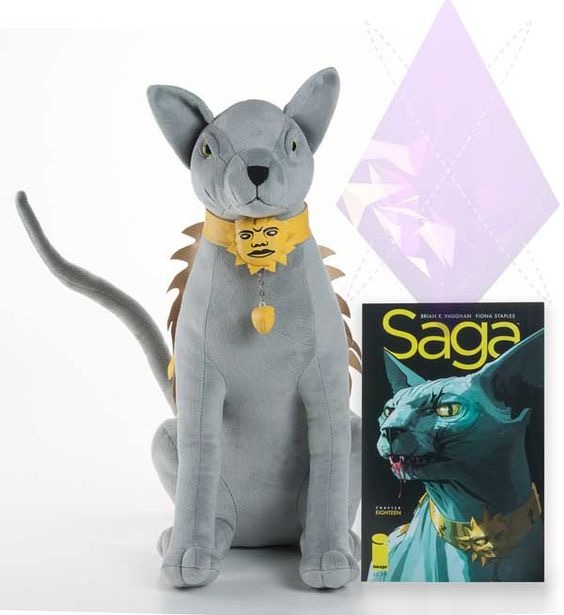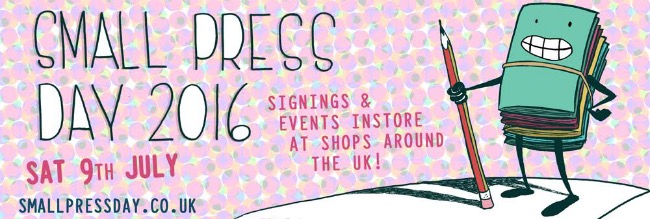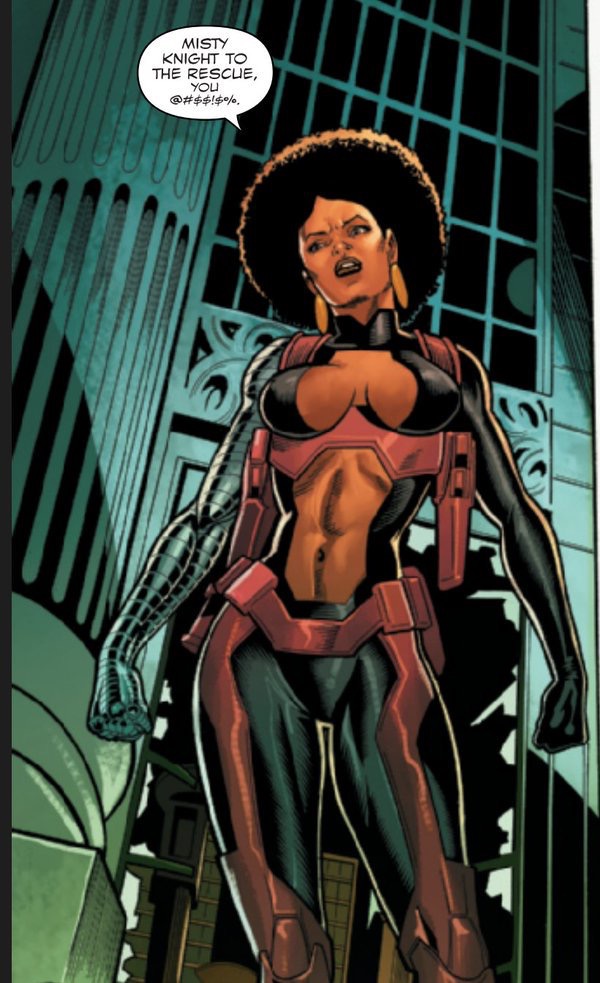The long weekend of Deadpool is over, Toy Fair is wrapping up, Valentine’s day is just a memory, and we have a backlog. but let’s kick things off with a brace of Image interviews. David Harper chats with Image publisher Eric Stephenson–surely nothing controversial will be said there.
One thing that seems to happen when you talk about Image is it comes back to your thoughts on what everyone else is doing, specifically Marvel and DC, rather than just what Image is doing. It happens in interviews and your keynotes at Image Expo. Why is that? Is it just impossible to separate Image’s performance from what everyone else in the industry is doing?
ES: Well, we don’t exist in a vacuum, obviously, and I would personally argue that you can’t have a candid conversation about the comics industry as a whole, let alone any one company’s performance, without acknowledging the effect Marvel and DC have on the marketplace. They are referred to as “the Big Two” for a reason: they have more market share than any other publisher, or even every other publisher combined, and their business decisions affect us all. People complain about the fact there is a single distributor and that is entirely the result of Marvel’s decision during the 1990s to buy Heroes World. We are still living with the ramifications of that decision today. So when I talk about things I feel Marvel or DC are doing wrong — and with an eye toward this June, I think they’re being incredibly irresponsible with how they’re presently positioning themselves within the marketplace — it’s not as simple as just comparing Image with them or whatever. I’m looking at what they’re doing and what it means for the future of our business.
§ And Paul Lai talks to Image’s branding manager/Mr. Fix-It, David Brothers and also dubs this the Spectrum Age. That settles that!
My goal is to be a facilitator more than anything else, whether that’s encouraging people to utilize informed portrayals of things outside their experience or depicting entertaining violence or even just sharing their stories in general. I don’t have much interest at all in creating comics, and that’s a decision I made years before I shut down 4thletter!. I like being around them, and after seeing what saying a little bit about them can do to or for a creator, I think my best place is helping out. Plus, I’m generally curious about things, and I’ve got a job that lets me ask just about anyone anything at all and they’ll usually want to answer, which is seriously wild. I did a podcast with Skottie Young that was about I Hate Fairyland, his first creator-owned book, for the first half and then our shared love of rap music for the second half. I got to bend my interests and curiosity toward something that benefits both of us, I hope.
§ The old timey Comic Fest was held in San Diego over the weekend, and based on my social media everyone had a blast. Organizers expected about 2000 people to attend, which given the guest list, is very intimate indeed.
§ This is old and much linked to, but Steve Lieber talks about launching The Fix, a new creator owned Image title about “a couple of corrupt police officers in Los Angeles at war with a drug-sniffing beagle named Pretzels.” SOLD!!! It’s written by Nick Spencer, drawn by Lieber. Lots of good solid info here:
If you keep up with the North American comic book market, you might have seen the most recent edition of Previews, the monthly catalog from Diamond Comic Distributors, Inc. The cover, I’m happy to say, was my work. It was there to promote my new monthly comic from Image Comics, The Fix. It’s co-created by me and Nick Spencer, with color by Ryan Hill, and lettering and graphic design by Nic J. Shaw. Unsurprisingly, I’ve had a lot of questions come pouring in about the project. I realized that this column would be a good place to offer some general advice while answering them. SOME of them, at least. The most frequent question was “How did you get on the cover of Previews?” Good question! That’s very valuable real estate we’re occupying. Unfortunately I have no idea how we got on there and as of my deadline for this column, I haven’t been able to get an answer from anyone who would know. I do know that Nick Spencer’s and my last project, Superior Foes of Spider-Man, earned an Eisner Award nomination for Best Humor title, and inspired intense loyalty from its fans—way, way beyond what our sales would indicate. We never sold big numbers, but the people who bought the book liked it A LOT. Maybe that helped? I can’t say for sure. What I can say is this: The most effective promotion you can count on for your next project is your last project. When the time comes to publicize your new project, the first people you want to reach are the ones who liked your last one.
§ This is another holdover, but Abraham Riesman’s hero history of Deadpool includes quotes from all the relevant players and is the one you need to read:
While Deadpool’s been around for 25 years, only in the past decade has he experienced a wild and improbable ride that’s brought him to imminent cinematic fame. Created just before a financial collapse that left the comics industry in ruins, he was briefly a massive sensation, then became a cult-hit character beloved by a devoted few. After suffering through a dismal period of low sales and chronic disinterest, Deadpool had a remarkable — and, to this day, unexplained — explosion in popularity that made him a pop idol. Go to any Comic-Con, and you’ll witness dozens upon dozens of people clad in his trademark red-and-black full-body jumpsuit. Walk into any comics shop, and you’ll find his masked visage in the pages of an astounding number of comic books, far more than any other Marvel character. Flip through online superhero-fandom communities, and you’ll see page after page of Deadpool memes and quotes. His rocky and triumphant road is one only possible in the ecosystem of comic books, where creators of monthly series build on one another’s ideas over the course of years, fumbling toward the construction of a fully realized icon. And he now exists as a character beloved by fans who otherwise might not agree on just about anything.
§ You’d think an article called The 10 Best R-Rated Comic Book Movies Of All Time might be very short, but by god they came up with ten AND DIDN’ EVEN MENTION THE TWO BEST COMIC BOOK MOVIES OF ALL TIMES, Ghost World and American Splendor, both R-rated. The early Aughts were a different time though.
§ BTW, it’s still goofy that the Ghost World filmmakers decided to add a plot where teenaged Thora Birch decides to be attracted to middle-aged misanthrope Steve Buscemi. Talk about a Mary Sue!
§ You can now buy a Lying Cat Plushy Doll. $34.99!
§ In the UK they are planning Small Press Day 2016 for July 9th
If you’re an observer of the UK small press scene you will no doubt have noticed the flurry of social media discussions a few weeks back about the possibility of a dedicated day of events promoting the flourishing and ever growing worlds of self and micropublishing. That initial back and forth quickly took on a life of its own and Small Press Day was born with a Twitter account, a hashtag, and a group of committed activists including small press organisers, creators, publishers, retailers and commentators ready to bring to life the very first event this coming July 9th.
§ Misty Knight is a much loved comics character, but pulling guns out of her boobs might tax even her skills, as Claire Napier reveals in Misty Knight and the Case of the Ridiculous Males: Bra Holster Hell
Misty is seen here—in her debut, post-Secret Wars, her reintroduction to the new, better, because-you-allegedly-asked-for-it Marvel Universe (in this! Black History Month)—wearing a holster (?) that, image-wise, amounts to a frame for her bosom. It’s a breast frame. It emphasizes and centers her breasts. In the most basic, immediate and obvious sense, this is a sexist outfit and for that reason it is bad. Misty has been put in this abomination because “does she have nice breasts” is an important element in the “shall we let this pre-menopausal woman be present in our story” equation. This is the house Stan and Jack have built. They didn’t build it alone or in an untamed wildnerness, but Marvel can answer for sexism as much as Marvel employs it: Marvel Makes Mammaries Matter. It’s not fair, kind, or right to do this kind of breast-emphasis, and that’s compounded by the context of the image’s publication.
In other words, while neither consumers nor advertisers will pay enough for news to cover its costs in print form, they won’t cover the costs in digital either. Immediacy and efficiency and searchability and connectedness have not proved to be any more valuable than the slow delivery of yesterday’s news. Apps, once a promised land, got little traction with advertisers and also demanded that publishers transcend their skill and financial limitations and turn into software developers. Even Twitter, once seen as a revolution in both the form and distribution of news, seems too, with its growth plateaued, to be a failed revolution. At present, the FT concludes, there is no viable economic model for a written news product.
§ Finally, very sad news. Kevin Smith and Greg Grunberg (that suburban looking guy in the war room in The Force Awakens) are hosting a new talk show on AMC to be called Geeking Out, which will investigate “pop culture through a fanboy lens and feature talk, clips, celebrity interviews and out-of-the-studio segments.” Friends and family ask for privacy at this time as they mourn the death of anything remotely related to geek culture being cool ever, ever again.


